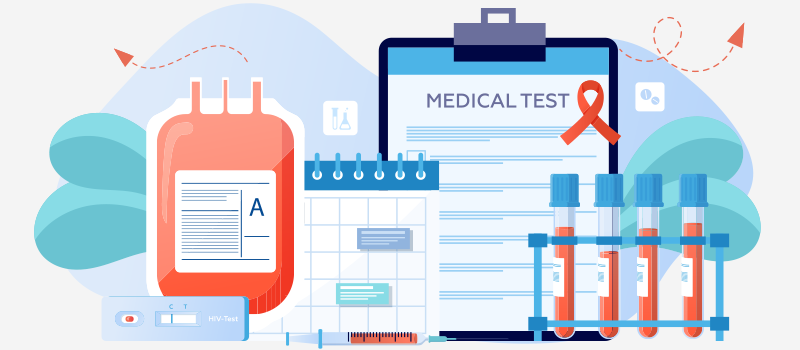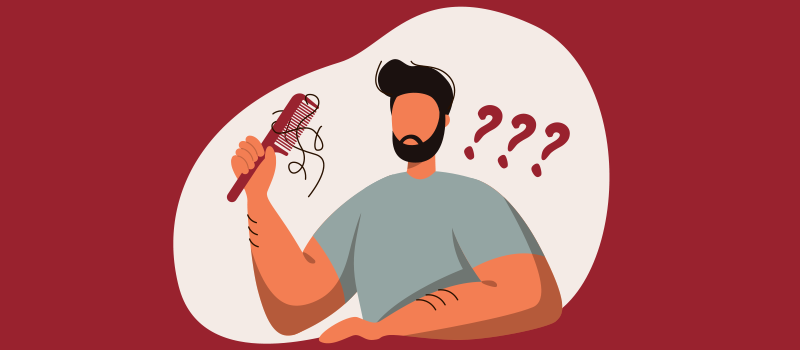What’s the Buzz
The Bee Healthy Blog
What Causes Night Sweats in Men?

The sweat glands play an important role in regulating body temperature. Sweating is a normal phenomenon when the weather is hot or when you exercise. However, excessive sweating for no obvious reason can be a sign of underlying medical conditions, especially if it is accompanied by other symptoms such as fever or weight loss.
Night sweats are repeated episodes of excessive sweating at night caused by an underlying illness. Oftentimes, the sweating is heavy enough to soak through clothing and bed linen, such that you wake up drenched in sweat. Notably, night sweating due to a warm room temperature or your choice of bedclothes does not qualify as “night sweats.”
Both men and women experience night sweats. Please continue reading to find out the possible causes of night sweats in men.
What are common causes of night sweats?
Some of the common causes of night sweats in men and women include:
- Generalized anxiety disorder
- Alcohol use disorder or substance use disorder
- Hyperthyroidism (overactive thyroid gland)
- Sleep disorders such as obstructive sleep apnea
- Gastroesophageal reflux disease (GERD or acid reflux)
- Stroke and nervous system disorders
- A bacterial infection such as tuberculosis, brucellosis, or valley fever
- Autoimmune diseases
- Inflammatory conditions such as endocarditis, Takayasu’s arteritis, and osteomyelitis
- Primary idiopathic hyperhidrosis (a health condition in which there is excessive sweating)
- Cancers such as leukemia, lymphoma, carcinoid tumors, and pheochromocytoma
- Human immunodeficiency virus (HIV/AIDS)
- Side effects of certain medications, including antidepressants, hormone treatments, diabetes medicines, and methadone (a medicine used to treat opioid use disorders)
What causes night sweats for a man?
In addition to the above, a possible cause of nighttime sweating in men is low testosterone (male hypogonadism). This condition can be diagnosed with a simple blood test. It’s worth noting, however, that hormonal shifts occur naturally with age, and low testosterone levels are common as men get older. Besides night sweats, other symptoms of low testosterone include low sex drive, reduced sperm count or infertility, shrinking testicles, enlarged male breasts, hot flashes, depression, trouble concentrating, and decreased muscular strength and endurance.
Why are night sweats a red flag?
Night sweats are a red flag because they can indicate underlying health conditions. Extreme sweating is a common symptom of many medical conditions. It is important to find out what is causing night sweats and treat that condition.
For example, low testosterone levels can trigger night sweats in men. If a blood test shows low testosterone, your doctor may order further investigations to find the underlying health condition. Possible causes of low testosterone include being overweight, type 2 diabetes, infections, liver disease, kidney disease, and pituitary gland disorders. Once the cause is identified, it can be treated, and you should get relief from night sweats. If no underlying cause is found, your doctor may prescribe testosterone replacement therapy to reduce nighttime sweating.
On the other hand, if a sleep specialist diagnoses a sleep disorder such as central sleep apnea as the underlying condition, the treatment will be completely different. It may include using a CPAP machine at night.
If you have a condition such as primary idiopathic hyperhidrosis as the cause of your night sweats, your healthcare provider will recommend prescription nerve-blocking medications, botulinum toxin injections, and other appropriate treatments.
Serious infections and hormone disorders require different treatments. The important thing is to seek timely evaluation so that the underlying medical condition causing night sweats can be diagnosed and treated.
How do men stop night sweats?
Men can stop or reduce night sweats by making some simple changes. Ensure you are not sleeping in a warm bedroom or using too many blankets. This will help keep your core body temperature cool, prevent night sweating, and promote better sleep.
Lifestyle changes to prevent night sweats include avoiding a hot shower, hot drinks, spicy foods, and alcohol, especially in the hours before you fall asleep.
Another thing you can do is maintain a healthy weight. Excess weight can lead to low testosterone, which is a possible cause of night sweats in men.
If you have anxiety, it may be a possible cause of excessive sweating at night. Talk to your family medicine doctor about a referral to a mental health professional if needed. Many people find that breathing exercises, yoga, and meditation help to calm emotional symptoms and relieve physical symptoms such as night sweats.
Keep in mind that if left untreated, night sweats can lead to excessive daytime sleepiness and trouble focusing. This can be a risk factor for accidents and injuries and affect the quality of your everyday life. If your night sweats continue despite these lifestyle changes, make an appointment to see your healthcare provider.
When to see a doctor for night sweats?
You should see a doctor if persistent night sweats are preventing you from getting a good night’s sleep. Also, see your healthcare provider if your night sweating is accompanied by other symptoms such as weakness, weight loss, cough, sore throat, fever, pain, or diarrhea.
Your doctor will listen to your symptoms, perform a physical examination, and order laboratory tests or imaging studies to find out if there are any underlying health conditions causing your night sweats. The treatment will depend on what the investigations reveal. For example, if low testosterone levels are the underlying reason why you sweat excessively at night, your doctor may recommend hormone replacement therapy.
References:










SOCIAL